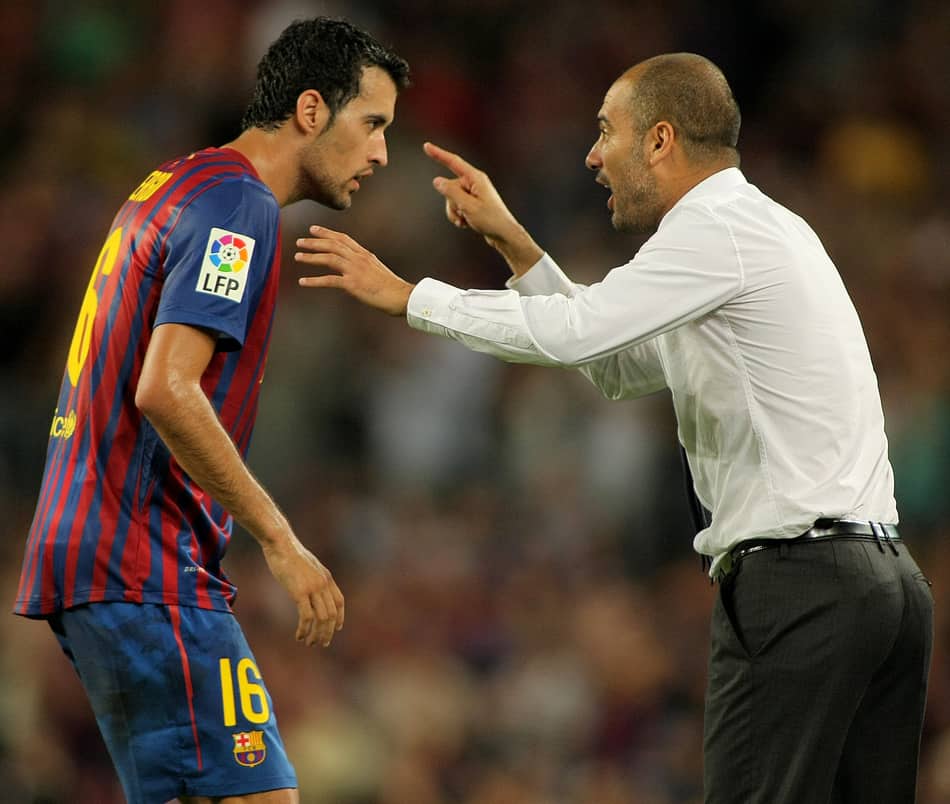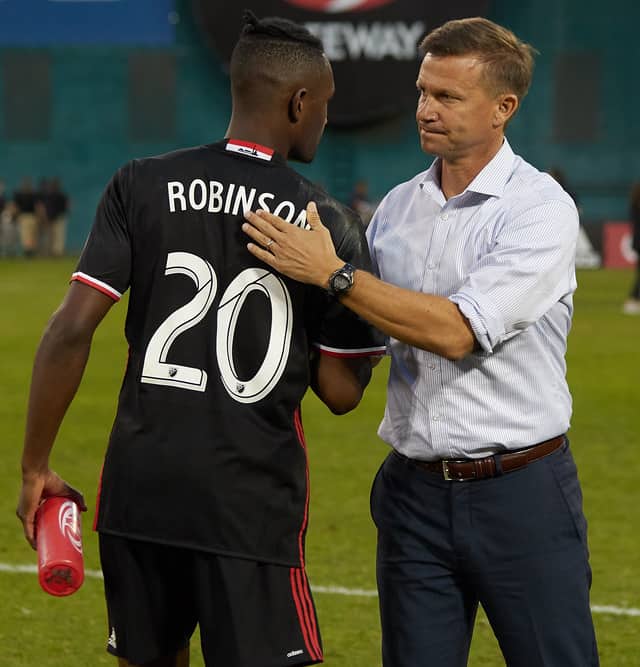If you you are a new or inexperienched football (soccer) coach, you should always be looking at what you can do to improve. Even coaches with years of experience continue to find ways to develop and improve on their coaching skills.

So in this blog post, I am ging to share 10 ways that can help you become a better coach!
Just before we check them out, I must add that the list of 10 is not exclusive. There are other skill sets that could have been included but our time is precious so I kept it to the following 10:
- Planning
- Self-belief
- Having a mentor / trustworthy assistant
- Being approachable
- A motivator
- Be professional?
- Strong player management skills
- Open minded
- Professional development
- Reflection skills
Planning
Planning can be key to how successful your team plays during the season. Not having a clear idea on your team’s game model, how and when you will coach the key principles for how you want your team to play, can lead to confusion with players not understanding their collective and individual roles.
Setting out a long-term plan over a season will make structuring weekly training sessions easier and less stressful. Especially if you are like myself, juggling football around a full-time job and having family responsibilities which restricts your planning time during the season.
Also, player’s learning and understanding of the game model will be absorbed with so much more ease and therefore creating a greater chance of your team having a successful season.
Self-belief
Self-belief is a vital tool for any coach to have. There will be times in a season that you will feel as though you are, metaphorically, isolated on a desert island.
Especially after a bad result!
Having constant doubts regarding tactics, resulting in persistent changes which are not in line with the original game model, that players learned, can cause players to have a lack of confidence with instructions given to them by the coach.
Believe in your ideas and stick to your principles! Whilst Subtle changes can be used to improve a team, do not relay contradicting messages.
You are the person that understands more than anyone how you want the team to play and what you expect from all the players. If you do not believe in your way of playing, how do you expect your players to?
Having a mentor / trustworthy assistant
Having a support system, such as a mentor can have a hugely positive impact.
Now a mentor is not somebody that is there to tell you what you have done right or wrong or that you have to do something a certain way.
This is not what mentorship is all about.
A mentor is someone that is there to listen, provoke your thought process (so that you can decide what’s right, wrong or what needs tweaking) and simply guide you down a path of being your own coach, not simply trying to copy the style of Guardiola, Klopp or Mourinho.
You do not have to limit yourself to just one mentor. Conversing with a number of more experienced coaches and picking their brains can reveal a variety of solutions or methods of how to deal with certain situations, with each one having its own merits.
These conversations between yourself and your mentor can help your confidence, create a clearer perspective and, hopefully, inspire you to keep on improving.
Approachable

I remember as a 20 year old playing for the first team of a professional club (not long after I had joined the club), telling the coach at half-time that I was struggling due to an injury that I had picked during the game.
At first I was reluctant to say anything as I was not sure what the reaction would be but in the end I plucked up the courage to reveal the problem.
I wish I didn’t!
The response I got was, let’s just say, not great. Before that incident I was not sure if I could approach the gaffer (coach) but it was clear to me after that incident that I couldn’t.
Now the reason for sharing this is not for me to reminisce about my playing days but to get you thinking about, do your players feel comfortable to come and speak to you?
Even though you might be the person in charge and expected to keep a level of discipline etc, having players that feel comfortable to approach you with issues in their game, or anything else, is going to create a more positive bond between yourself and the players.
Motivator
Being a good Motivator is not as simple as just saying a few words before a game. Having the capability to motivate a player for the whole season (training and for games) is something quite different. Let’s not forget that we have multiple personalities with their own individual motivation traits.
These motivational traits are as follows:
- Trait-Centred View
- Situation Centered View
- Interactional View
The significance of this means that we might have to adjust our motivational techniques for each individual as they may possess different motivational traits.
So we need to not just think about giving great one off speeches like AL Pacino in Any Given Sunday.
As great a speech as that was!
But to implement motivational strategies and or have a greater realisation of the impact that the words you use will have on specific players or the way you give instructions at training and during a game.
Be professional
Now before you say it, I accept that ‘being professional’ is one of those tips that everyone states in a very general term.
However, I wanted to point out that being professional does not mean it is obligatory to be serious with the players 100% of the time.
Being professional is recognising when to be sympathetic, when to give someone a kick up the backside (not literally of course), when to have a joke with the players and when to be serious. Obviously all of the above need to be done using appropriate language & behaviors to set an example for the whole team.
Strong player management skills
Players respect (even if they do not like a particular coach) coaches who treat everyone fairly, consistently and not giving one individual player special treatment.
Having good relationships with the players can help with strong management skills. It does not mean that you have to walk around being authoritarian with everyone, in fact, letting players make certain decisions can be a sign of strong player management skills.
Open minded
For me, this means that we as coaches are able to take a step back and consider things from an alternative view point.
This could mean considering a player’s perspective before calling them out on a perceived bad decision or technical error. It might be that other mitigating circumstances forced a player into a particular decision and therefore the correction might need to be with another player or with the team’s tactical set-up.
Another example could be with your preferred way of playing. I’m sure that we all have our ideal system or style of play but at the end of the day, if you do not have the players with the capabilities to play in that manner then you must be able to adapt and play to the strengths of the individual players within the team.
Obviously if you’re a Premier League coach, then you can splash the cash to buy the players that fit into your way of playing. However, I am pretty sure anybody who is reading this blog is not in that position.
Professional development
In life we are constantly learning and as a coach that does not end when you gain your coaching qualifications.
It’s a great feeling when you gain that certificate, no matter what level it is.
But that is only the start!
I truly believe that we learn so much more after receiving a piece of paper stating your qualification, simply by applying ourselves in practical situations where we have the freedom to experiment with various ideas to see what works and what doesn’t.
Having said that, it is still important to continue professional development through attending courses, to learn new ideas or just to refresh your memory on something that you might have forgotten over time.
It does not always have to be through paid courses. Simply reading up to date journals, blog articles from fellow coaches or listening to podcasts and webinars. All of these can offer thought provoking topics which may tempt you to try implementing inside your own coaching environment.
Reflection
For me, reflection is the biggest tool we have for continuous development. Spending some time reflecting on past experiences such as training in general, a specific drill or simply a conversation with a player, can be extremely helpful for developing coaching skills.
Reflection gives you the chance to ask yourself questions that can lead you to understanding why, for example, a particular training drill was or was not successful.
This tool provides you with an opportunity to learn a great deal about your coaching or interactive skills with players so you can continually add and adjust your style or methods for greater success.
Thank you for reading this blog post and I hope it gave you something to think about.
